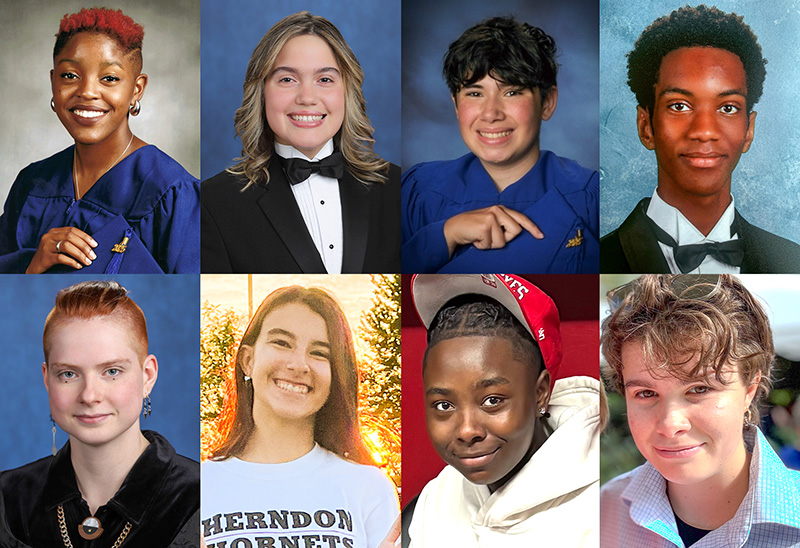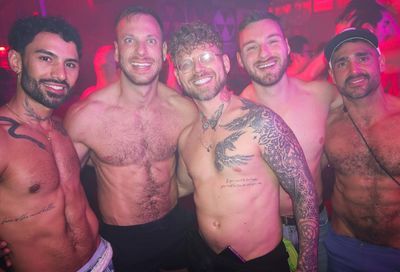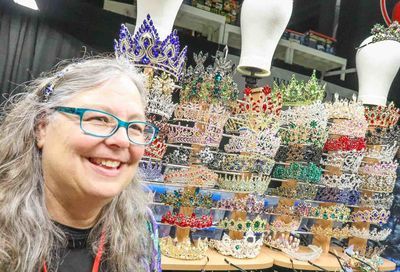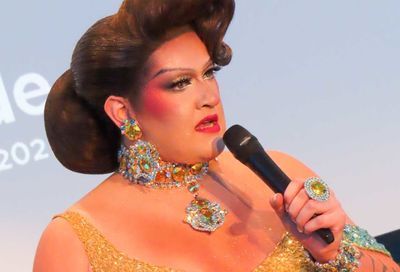Advocates call on health experts to include LGBTQ people in COVID-19 vaccine rollout
Experts say significant outreach to LGBTQ people will be needed to overcome distrust of medical establishment

More than 125 LGBTQ organizations have called upon the Association of State and Territorial Health Officers to create an inclusive and coordinated plan to collect LGBTQ-related data and incorporate LGBTQ people into the distribution plan for the COVID-19 vaccine.
While communities of color in the U.S. have largely borne the brunt of illness and death resulting from the COVID-19 pandemic, studies have also shown that LGBTQ people are more likely to work in industries that put them at higher risk of acquiring COVID-19, and have been disproportionately impacted by financial hardship stemming from shutdowns put in place to control the spread of the virus.
As a result, advocates say LGBTQ people must be included in comprehensive and targeted messaging campaigns to ensure they can participate in vaccination efforts.
“Because they are more likely to hold frontline jobs and have certain chronic conditions, LGBTQI people may be disproportionately vulnerable to novel coronavirus infection and to complications should they develop COVID-19,” Sean Cahill, the director of health policy research at The Fenway Institute, said in a statement. “This is especially true of Black, Latinx and indigenous LGBTQI people and LGBTQI older adults.”
“With COVID-19’s widespread impact, including lives lost, and increasing barriers to care like reduced hospital capacity, loss of benefits and cancellation of non-urgent care, it is more imperative than ever that our healthcare leaders at the state, local and national level work to better engage these communities in the healthcare system and prevent further harms to these communities,” Juan Carlos Loubriel, the director of community health and wellness at Whitman-Walker Health, which is a signatory to the letter, said in a statement.
Advocates have noted that outreach efforts to the LGBTQ community will have to be significant, in order to overcome distrust of the medical establishment and encourage more constituents to receive the vaccine.
That outreach must include an educational component, so LGBTQ individuals are aware of when a vaccine is available, how to access it, and whether to trust those administering the vaccine.
“Many older LGBTQI people experience medical mistrust because when they were coming of age the medical establishment pathologized same-sex behavior and gender diversity. Many sexual and gender minority individuals were subjected to shock therapy or lobotomies, or were committed to psychiatric institutions with the support of mainstream medicine and psychiatry,” notes the letter.
“Intersex people also often have challenging relationships with the health care system. Many have experienced medical trauma related to medically unnecessary cosmetic surgeries conducted without their consent, and unnecessary and objectifying medical examinations,” the letter continues.
See also: LGBTQ households disproportionately impacted by COVID-19
Dr. Scout, the executive director of the National LGBT Cancer Network, noted that community influencers on social media have been asking why they should trust a vaccine made by a government that has not been LGBTQ-supportive, and called on state health leaders to acknowledge that that distrust is likely to inhibit people from getting vaccinated, further complicating efforts to curb the spread of COVID-19.
Signatories of the letter have also urged ASTHO to incorporate LGBTQ-related data into their vaccine dissemination plan in order to better track those who receive the vaccine and respond to any complications that may arise that may be unique to the LGBTQ community.
To provide a framework for health officials seeking to incorporate that data into their research, the letter included sample questions that could be used to determine a person’s sexual orientation, gender identity, or intersex status.
“Better engaging communities looks like providing affirming healthcare environments and understanding the full picture of the patient in front us by collecting more thorough data — and asking the right questions to collect that data,” Loubriel added. “We must document gender identity and sexual orientation in addition to data points like race and ethnicity to ensure that COVID-19 vaccine distribution efforts reach all communities represented in our complete population.”
Read more:
Franklin Graham urges “God’s Army” to stop Democrats from passing pro-LGBTQ Equality Act
AmazonSmile lets shoppers donate to anti-LGBTQ groups
Athletes, women’s and civil rights groups support Idaho transgender athlete’s lawsuit
Support Metro Weekly’s Journalism
These are challenging times for news organizations. And yet it’s crucial we stay active and provide vital resources and information to both our local readers and the world. So won’t you please take a moment and consider supporting Metro Weekly with a membership? For as little as $5 a month, you can help ensure Metro Weekly magazine and MetroWeekly.com remain free, viable resources as we provide the best, most diverse, culturally-resonant LGBTQ coverage in both the D.C. region and around the world. Memberships come with exclusive perks and discounts, your own personal digital delivery of each week’s magazine (and an archive), access to our Member's Lounge when it launches this fall, and exclusive members-only items like Metro Weekly Membership Mugs and Tote Bags! Check out all our membership levels here and please join us today!




























You must be logged in to post a comment.